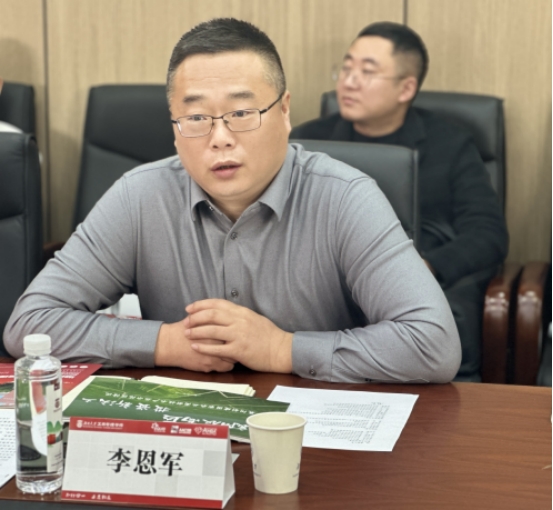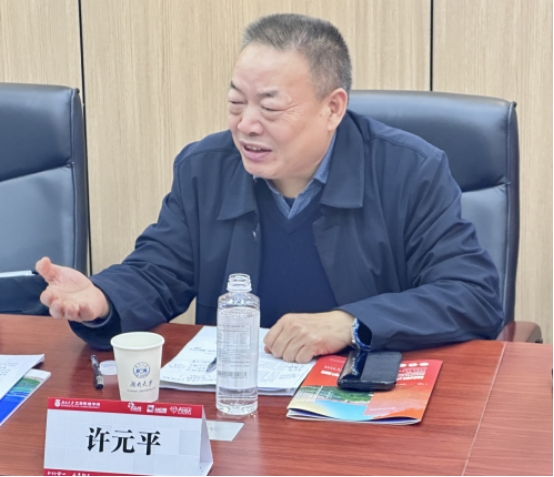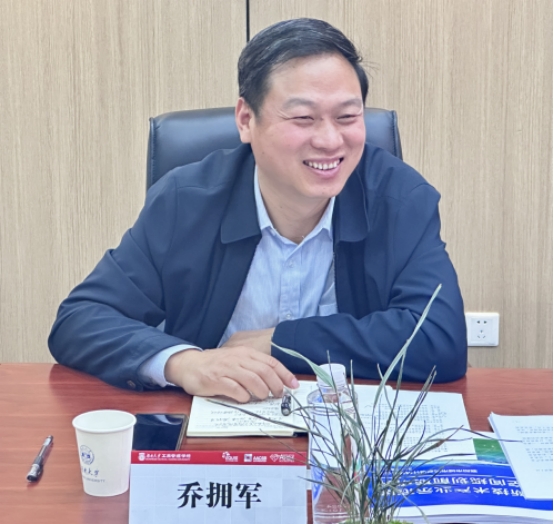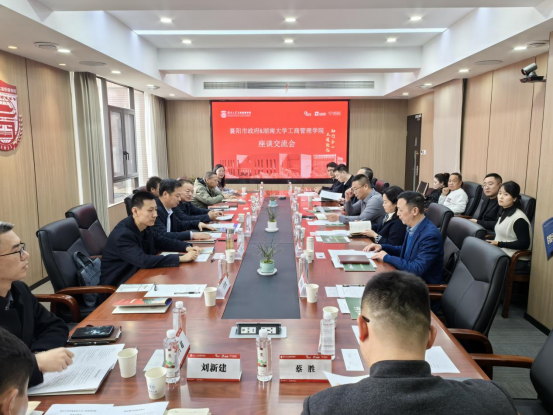On February 27th, a delegation from the Xiangyang Municipal Government, led by Deputy Secretary-General Xu Yuanping, visited the Business School of Hunan University (HNUBS). The visit aimed to discuss the development of the National Agricultural High-Tech Industry Demonstration Area in Xiangyang and to explore new pathways for integrating technology into the agricultural sector. Li Enjun, Deputy Secretary of the Party Committee at HNUBS, attended the meeting.
Warm Welcome and Introduction
Li Enjun extended a warm welcome to the Xiangyang delegation and provided a brief overview of HNUBS’s history and recent achievements in the field of business education. He emphasized that the school is not only committed to cultivating high-quality management talent but also actively collaborates with local governments and enterprises to promote the integration of industry, education, and research. This collaboration aims to contribute to the rapid economic development of the region.

Xiangyang’s Vision and Goals
Deputy Secretary-General Xu Yuanping expressed that Xiangyang is currently working on establishing a National Agricultural High-Tech Industry Demonstration Area. This initiative is a key measure for driving high-quality agricultural development and a crucial step towards achieving rural revitalization. He hoped that through the intellectual support of HNUBS, Xiangyang could learn from advanced experiences and successful cases in the integration of technology and agriculture.

Detailed Insights and Collaboration Opportunities
Qiao Yongjun, Deputy Director of the Xiangyang Bureau of Science and Technology, elaborated on the background, strategic significance, technological conditions, and policy support for the demonstration area. He highlighted Xiangyang’s strengths in agricultural, industrial, and technological resources. Qiao emphasized that the government is highly committed to this project and looks forward to deepening cooperation with universities and research institutions to accelerate the integration of technology and agriculture.

Strategic Directions for Collaboration
Cai Yanping, Director of the Government and Enterprise Connections Centre & Alumni Connection and Development Office, shared specific examples and stressed that government-enterprise cooperation should focus on building a stable and efficient industrial chain. She noted that agricultural development requires the deep integration of primary, secondary, and tertiary industries. This integration is not merely an extension of the industrial chain but fundamentally a restructuring and upgrading of the value chain.

Engagement and Sharing
Chen Liyong, Director of the Professional Business Administration Postgraduate Program Center, participated in the seminar, along with alumni and enterprise representatives who actively shared their insights and experiences.
This visit marked a significant step towards fostering a collaborative relationship between HNUBS and the Xiangyang Municipal Government, aimed at driving innovative and sustainable agricultural development.





